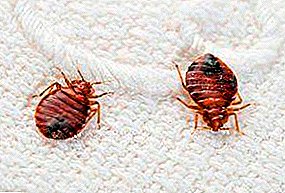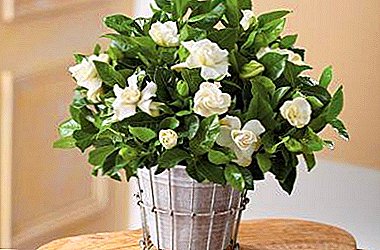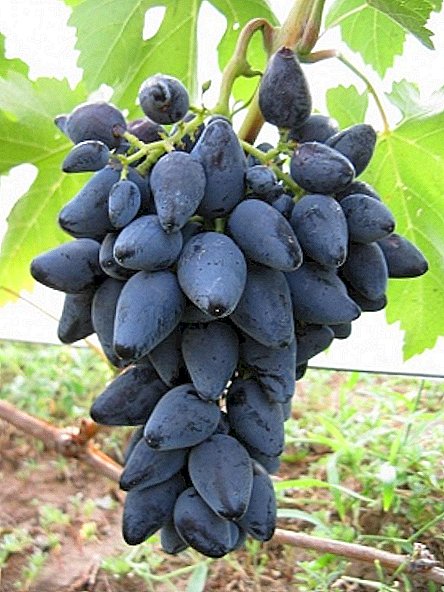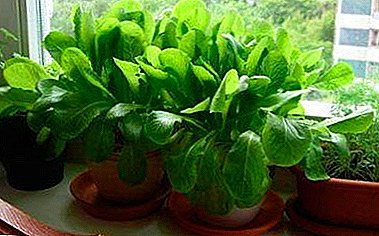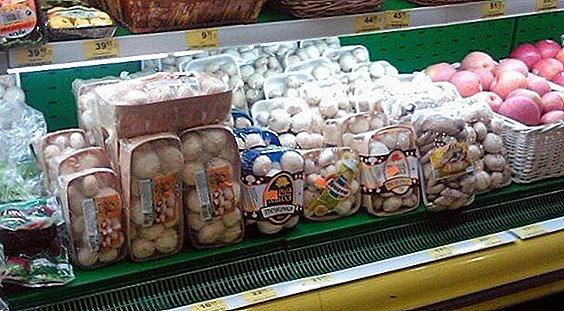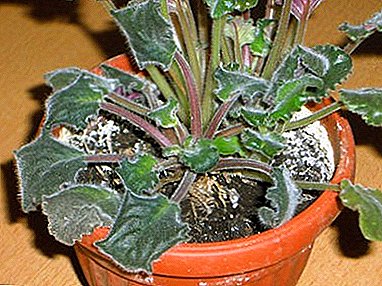 On window sills, pots, special shelves and stands homemade carnation feels as good as in the garden or in the flowerbed. It grows perfectly and looks great clove on the balcony, loggia, on the windows - in hanging pots, on the glazed veranda.
On window sills, pots, special shelves and stands homemade carnation feels as good as in the garden or in the flowerbed. It grows perfectly and looks great clove on the balcony, loggia, on the windows - in hanging pots, on the glazed veranda.
Did you know? This delicate, bright, beautiful, with a spicy delicate aroma the flower can bloom all winter, delighting you with its charm.
Which clove to choose for growing in a pot
For window sills, stacked shelves usually choose undersized varieties - up to 15-20 cm tall. But if you wish, especially if space allows the room, you can take tall varieties - up to 70 cm in height.
Did you know? Actually, there is no such thing as a room carnation, and the species grown at home are the same as those that grow in flower beds and flower beds.
Houses grow clove pinnate (Dianthus plumarius), garden or Dutch (Dianthus caryophyllus), Chinese (Dianthus chinensis), Turkish (Dianthus barbatus).
Conditions in the house for growing carnations in a pot
No special conditions for the cloves need to be created. It is not demanding, not whimsical at all, therefore, initially properly planted, it takes root well, grows and blooms.
Did you know? Looks great types of carnations of different colors, planted in one large capacity - box, flower pot on a leg or in multi-level stands.
Lighting
 Carnation is light-requiring, and lighting for it should be sufficient. It is better to place flowers in the house on the east, south, southeast side - in order to maximally lengthen the daylight hours. In autumn and winter, when the days are short, you will have to additionally illuminate the plant, at least occasionally, so that the carnation does not stay long in total darkness. With a constant lack of light, the plant grows poorly, shallows, and the flowering period is shortened.
Carnation is light-requiring, and lighting for it should be sufficient. It is better to place flowers in the house on the east, south, southeast side - in order to maximally lengthen the daylight hours. In autumn and winter, when the days are short, you will have to additionally illuminate the plant, at least occasionally, so that the carnation does not stay long in total darkness. With a constant lack of light, the plant grows poorly, shallows, and the flowering period is shortened.
Temperature
The optimum temperature for cloves room + 20-25 ° C. But at the same time the carnation normally tolerates a cool temperature of + 13-15 ° С and heat + 30-35 ° С.
Soil mixture
Carnation loves sandy, sandy soil, Chinese loves clay. The reaction of the soil is slightly acidic or neutral. Soil mixture can be made independently by adding organic matter to the earth - humus, sod, wood ash, peat or mineral, for example potash-phosphorus fertilizers. But in urban conditions it is easier, probably, to buy an already prepared universal soil mixture - the carnation grows excellently in it. Problems with growing cloves can arise from poor soil drainage, so take care of drainage. The abundance and stagnation of water lead to root rot - and the plant dies.
Important! One of the basic rules for growing carnations is good drainage of the ground to avoid the accumulation of excess moisture in the pot.
Care for cloves in the pot at home

Caring for a room clove is the easiest - to water and loosen the soil in time and properly, to feed, to prune. After the carnation bush has blossomed, the flowering inflorescences are cut together with the top of the stem to 5-6 cm. After a while, the plant will bloom again. Although many believe that after flowering the clove leaves lose their decorative effect and prefer to grow the plant as an annual, that is, uproot the faded shrub. But here you decide.
Watering and humidity
Carnation does not like dampness and abundant watering. Therefore, do not put flowers in the bathroom and in a poorly ventilated room. Watering is necessary as the soil dries, avoiding stagnation of water. Doing a shower and spraying a clove with water is also not worth it.
Top dressing room cloves
Growing cloves at home, even if you used ready nutrient soil for planting, will not do without top dressing. Fertilizer gives faster growth and stimulates lush amicable flowering. The first top dressing method of irrigation is carried out when the size of the stalk of a plant is 9-10 cm. The second one - as soon as buds form on the carnation, that is, immediately before flowering.
Did you know? A carnation in a pot - monophonic or patterned 2-3- or 4-color, simple or terry, with a strong or delicate aroma can decorate any corner of your home or winter garden, create an atmosphere of comfort, peace and summer mood.
Possible problems and pests of cloves
 Possible problems with a clove are a Fusarium lesion or fungal root rot. Its prevention consists in moderate watering of the plant and properly made drainage of the flower container. If, however, the flower is sick, then it is uprooted and destroyed. The land is treated with fungicidal solutions for gardening and floriculture. Heterosporiosis (also a fungal disease) and tick-borne carnation damage are less common at home. In both cases, the plant is treated Bordeaux liquid.
Possible problems with a clove are a Fusarium lesion or fungal root rot. Its prevention consists in moderate watering of the plant and properly made drainage of the flower container. If, however, the flower is sick, then it is uprooted and destroyed. The land is treated with fungicidal solutions for gardening and floriculture. Heterosporiosis (also a fungal disease) and tick-borne carnation damage are less common at home. In both cases, the plant is treated Bordeaux liquid.
Did you know? The best varieties of carnations for indoor breeding are Alpine or Glacial carnation, Diana, Little Willy, Coral, Dulce, Souvenir de Malmaison, Shabo, Sonata, Northern Lights, Pleiades, Rosa Kenigin, Chebo, Charms, Super Fantasia, Summer Fantasia.
Growing cloves from seeds
A few words about how to grow a clove from seeds. This is the easiest and most common way. Before planting, it is not necessary to soak the seeds, it is enough to water the hole. Seeds are buried to a depth of 0.7-1 cm, sprinkled with earth at the top, watered from a watering can with a spray nozzle and covered with plastic.
Important! When covering sown seeds with a film, from time to time, open them for air exchange.
Shoots will be about 14-16 days. All this time, the ground should be moistened - before the first shoots. Sprouted saplings dive after 3.5-4 weeks, the optimal distance between them is 5-7 cm.
Did you know? For picking it is better to use a pick dive - sold in specialized stores for florists.
 If the carnation seedlings are superfluous, more precisely, the sprouts have sprouted in a heap, then they need not be thrown away. You can immediately sit down in a few pots, just take and carry must be carefully - with a basal earthen ball. If you are just starting to plant carnations in your home and are worried about how not only to grow, but also to prolong the life of a carnation in a pot, then follow our recommendations. And your work will surely be crowned with success!
If the carnation seedlings are superfluous, more precisely, the sprouts have sprouted in a heap, then they need not be thrown away. You can immediately sit down in a few pots, just take and carry must be carefully - with a basal earthen ball. If you are just starting to plant carnations in your home and are worried about how not only to grow, but also to prolong the life of a carnation in a pot, then follow our recommendations. And your work will surely be crowned with success!


